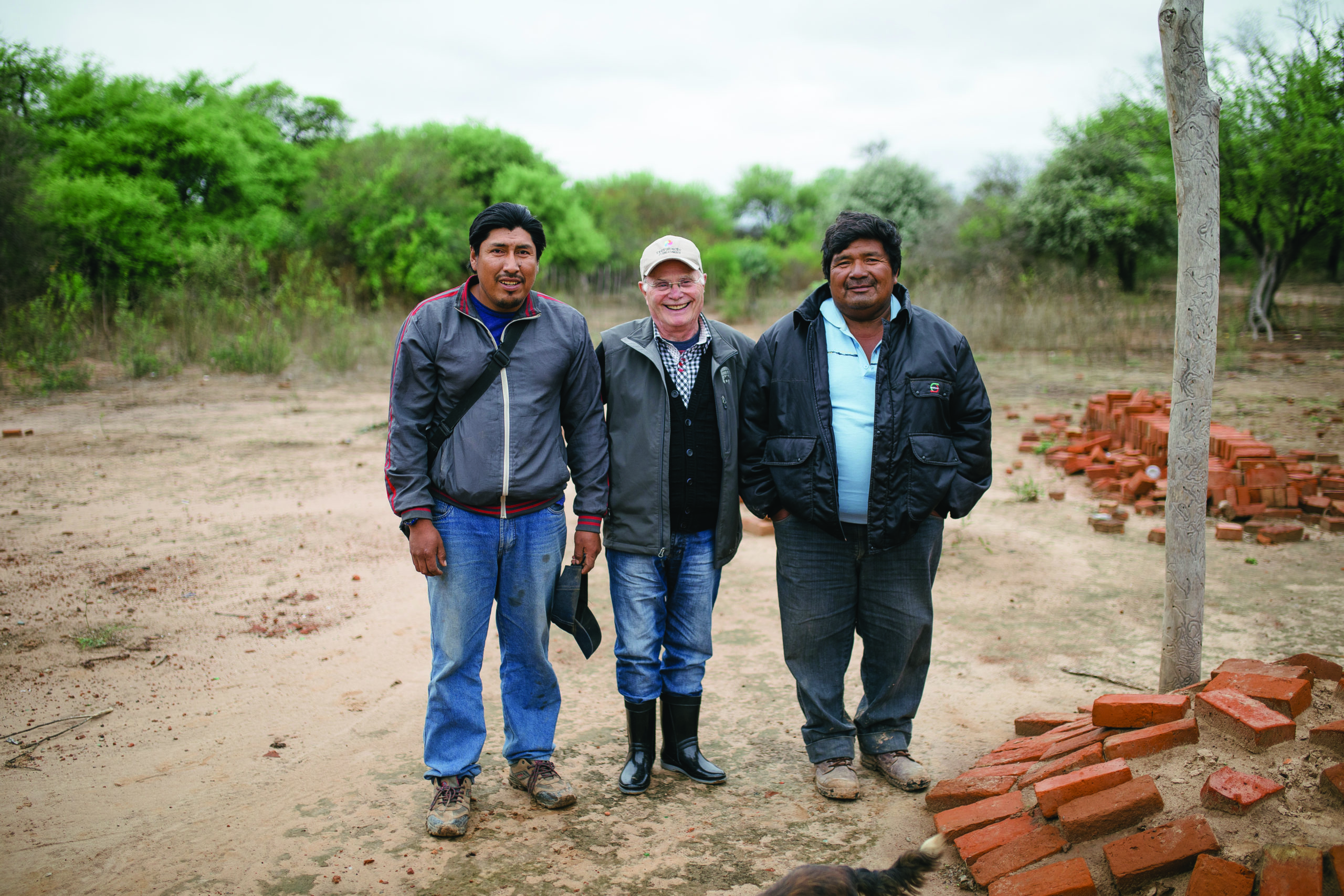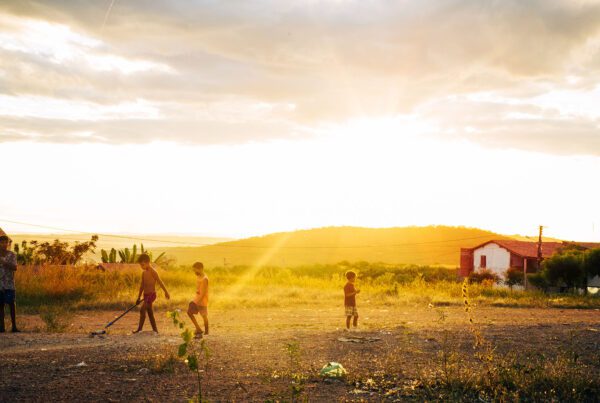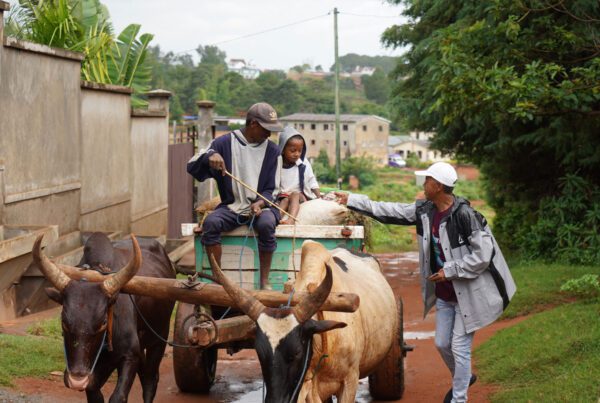It was like a scene from the book of Acts: God’s people entering a new community to share His love, and the community members responding by bringing their needs to the Lord. But this didn’t happen in the ancient Mediterranean. It’s happening in modern-day Argentina.
While traveling through northern Argentina’s wooded wilderness, Rino Bello and Francisco Mendez stopped at a group of shacks that weren’t there when they last visited the area. Children came running while women carrying babies walked behind. Men stepped away from their work and slowly drifted closer. These families were all from the indigenous Wichi tribe, just like Francisco.
“Hello,” Rino said with a wide smile. “We come to bring you an invitation from our Father in heaven!”
The crowd grew as more people appeared from their homes. A man named Mr. Moreno asked for prayer for his son who had crashed his motorcycle. A mother named Marcelina wanted prayer for her sick baby, Nicolas. As Rino and Francisco laid hands on the people to intercede for them, some had tears of gratitude in their eyes.
This beautiful moment was small, but it was one of many similar moments among the Wichi people — and connecting all of them is the friendship between Rino and Francisco.
”And the things that you have heard from me among many witnesses, commit these to faithful men who will be able to teach others also.
— 2 Timothy 2:2
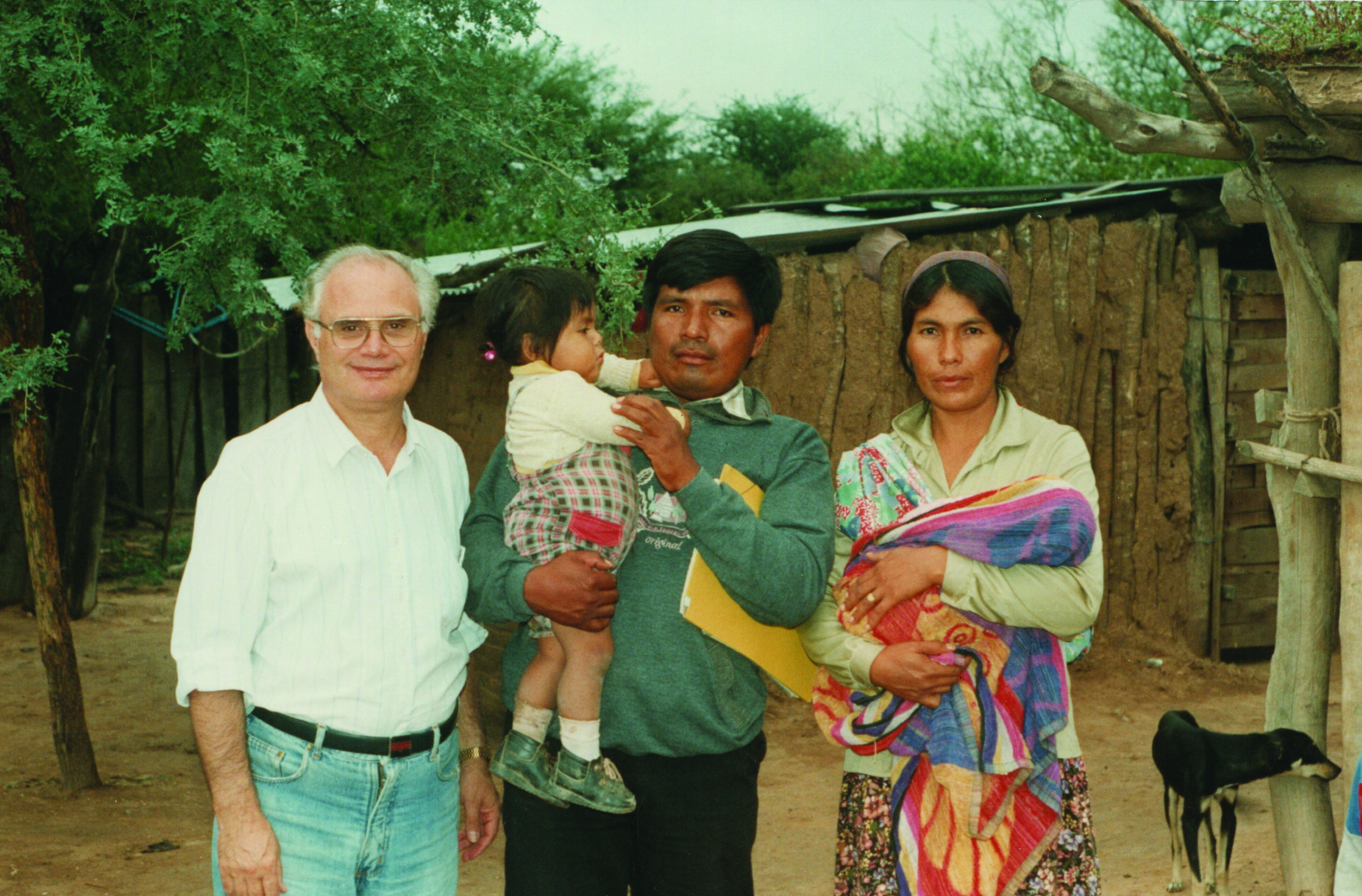
In many ways, Rino and Francisco are an odd pairing. Rino immigrated to Argentina from Italy as a child. Now 80 years old, he has a charming, youthful energy. Small in stature, Rino is always talking and always on the move. His granddaughter describes him as “Peter Pan.” Having worked with Every Home for Christ for 38 years, Rino serves as National Director of Argentina and Zonal Director over South America.
Francisco, on the other hand, is the head of the Wichi village of La Esperanza. Younger and larger than Rino, Francisco moves slowly and speaks even slower. He considers his words carefully. Typical of the Wichi people, his composure is reserved and relaxed. Francisco serves as an EHC leader among the indigenous people of Argentina.
Despite their differences, Rino and Francisco have one important thing in common: their passion to share the Gospel and to see their nation changed by Jesus’ love. It’s a passion that has resulted in 10,000 of the 25,000 indigenous people in Francisco’s area accepting Jesus as their Savior — and it’s a passion that Rino has imparted to Francisco through discipleship.
“Remember the end of the Great Commission,” Rino says. “First is to go. Then Jesus said to teach and make disciples. If you only teach without discipling, it’s just left there. It’s a monument. We don’t need any more monuments… we need living people.”
10,000 of the 25,000 indigenous people in Francisco’s area have accepted Jesus as their Savior.
Rino and Francisco met in 1991, after Francisco read a piece of EHC gospel literature. Francisco describes La Esperanza at the time as violent and influenced by witchcraft. The love of Jesus, however, offered hope. With the little Spanish he knew, he wrote to Rino — the first letter in a correspondence that would continue for decades.
A close friendship grew between Rino and Francisco. Rino baptized Francisco, and he even officiated Francisco’s wedding. He also taught Francisco to share the Gospel.
Francisco would visit his neighbors’ homes with EHC gospel literature, and for those who were illiterate, he would read the message aloud. Though some were resistant at first, they were soon won over by the change they saw in Francisco’s life. His character had strengthened, and he had become more cheerful.
Meanwhile, Rino saw himself as a servant to the Wichi. When he first visited La Esperanza, the people were living in cardboard shacks. There was no water and no electricity, and some didn’t even have clothing. A marginalized people, they were not even considered Argentinian citizens for many years.
Rino rallied churches in Buenos Aires to meet the physical needs in La Esperanza. He also went to the local government and advocated for the community to be given access to water and electricity. Rino was there for Francisco and his community not only as a teacher, but as a friend — demonstrating the heart of Christ for His disciples.
Slowly, the community of La Esperanza changed. Though work remains to be done, the cardboard shacks have been replaced by cinder block houses, electrical wiring has been set up, and water is regularly delivered. More importantly, a church now stands at its center.
“We are following God’s way,” Francisco says of his community. “There is a high value on helping people. Being there for them.”
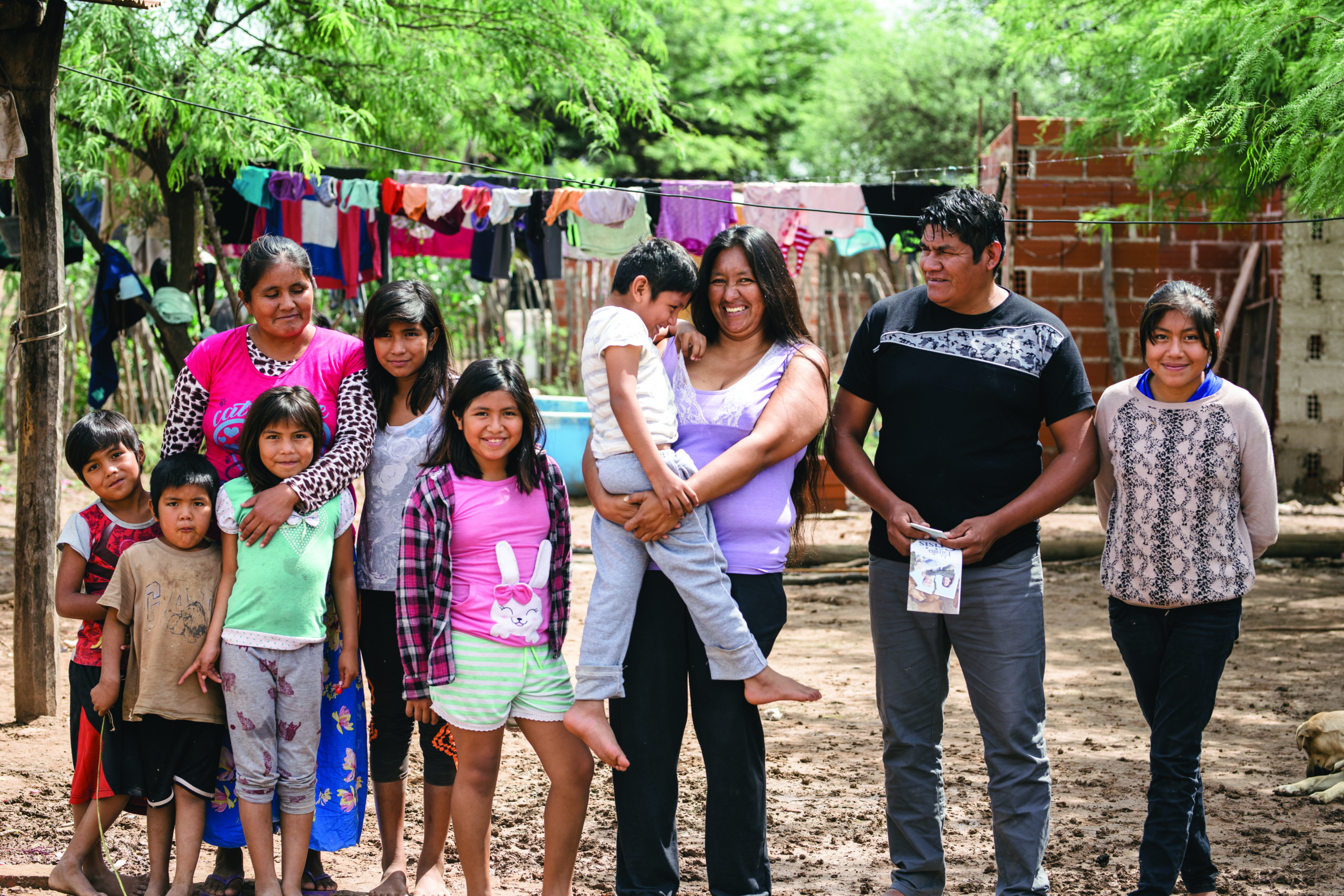
A new generation of Wichi children is growing up in Christian households where they are discipled by believing parents. These parents teach their children by example to share the Gospel with others.
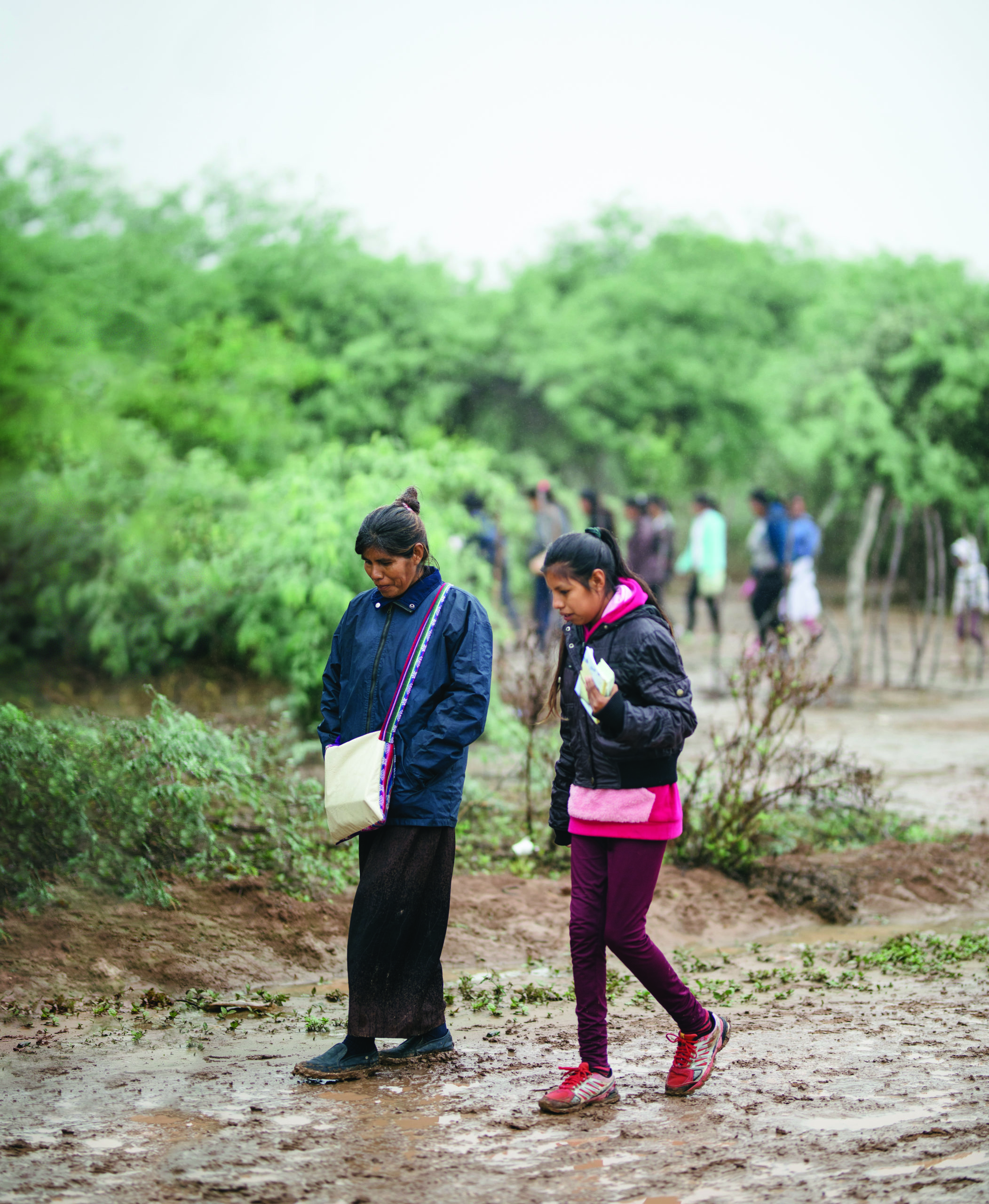
Francisco didn’t stop at sharing the Gospel in La Esperanza. He loaded up his motorcycle with boxes of literature and traveled for miles to find new settlements. He even crossed a river multiple times with his motorcycle in a canoe to take the Gospel into the dangerous wilderness of “El Impenetrable.” Soon, the believers in La Esperanza were taking the Good News to other indigenous communities as well.
As more people put their faith in Jesus, Francisco set up Christ Groups to disciple them. In these groups, new believers gathered for worship, prayer, Bible study and evangelism training.
The ones who had been discipled were now discipling others.
One of the communities Francisco still visits is called Fraga. There, 19 families live in crowded conditions with no electricity. They hunt for their food, and their only water source is a stagnant reservoir. But rather than using their resources to improve their circumstances, the people have chosen to build a church instead. Leading this church is a young man named Carlos Mendez — someone Francisco is discipling just as Rino discipled him.
Carlos says the church has been the priority in his community because it is his hope that, like La Esperanza, Fraga will become a launching ground for missions. Together, the three men represent three spiritual generations of discipleship, evidence that the Spirit works through relationships.
Personal connection has always been the way of Christ’s Kingdom. When Jesus called the twelve to be His disciples, He also called them to be His friends. They spent years by His side, traveling with Him, eating meals together and sharing both laughter and tears. Most importantly, Jesus served them — and they changed the world by doing the same.
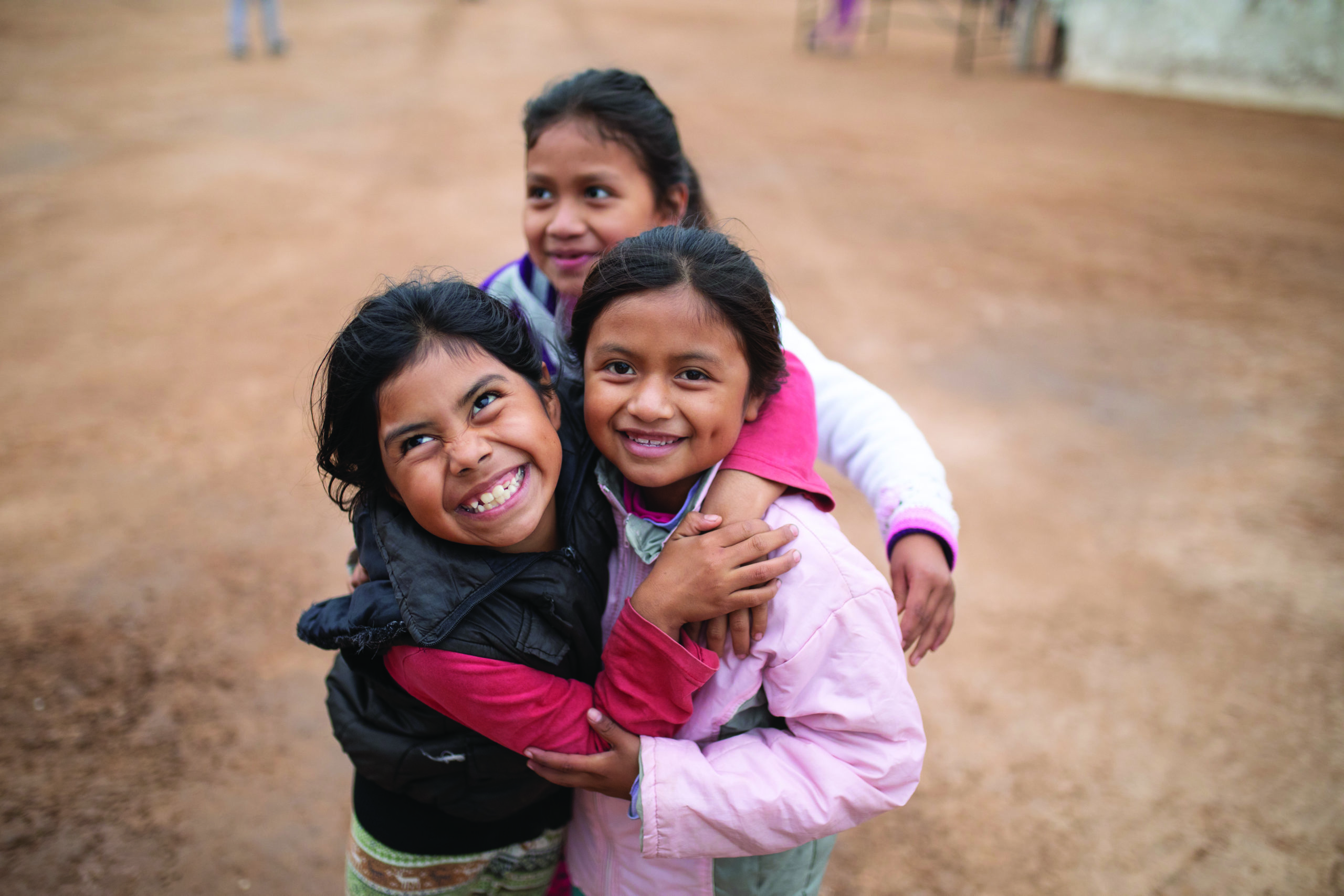
In October, La Esperanza celebrated 21 years of taking the Gospel to other indigenous Argentinians.
In that time, 40 percent of the indigenous community in the area has come to faith. But this wasn’t the result of a major enterprise or a complicated evangelism campaign. It happened simply, through individual relationships — through friendships like Rino and Francisco’s.
This is how the Kingdom of God spreads. One believer disciples another, and that believer reaches someone else. It’s about having a servant’s heart, forming a genuine connection and being there to demonstrate God’s love in a personal way. In Argentina and all over the world, the Gospel is spreading through Christ-centered relationships.

